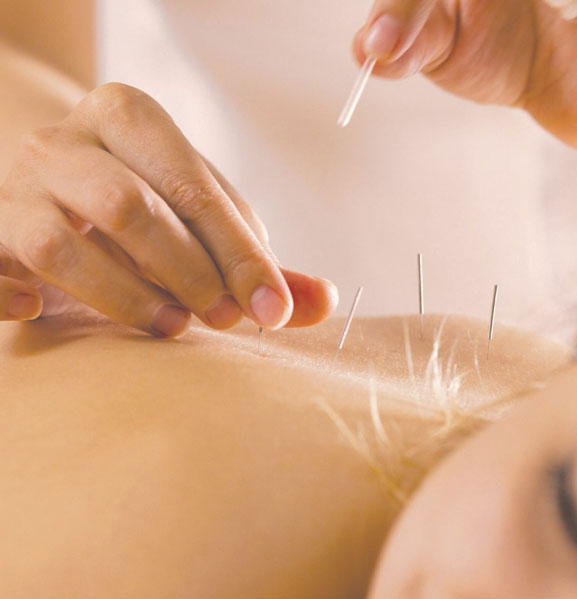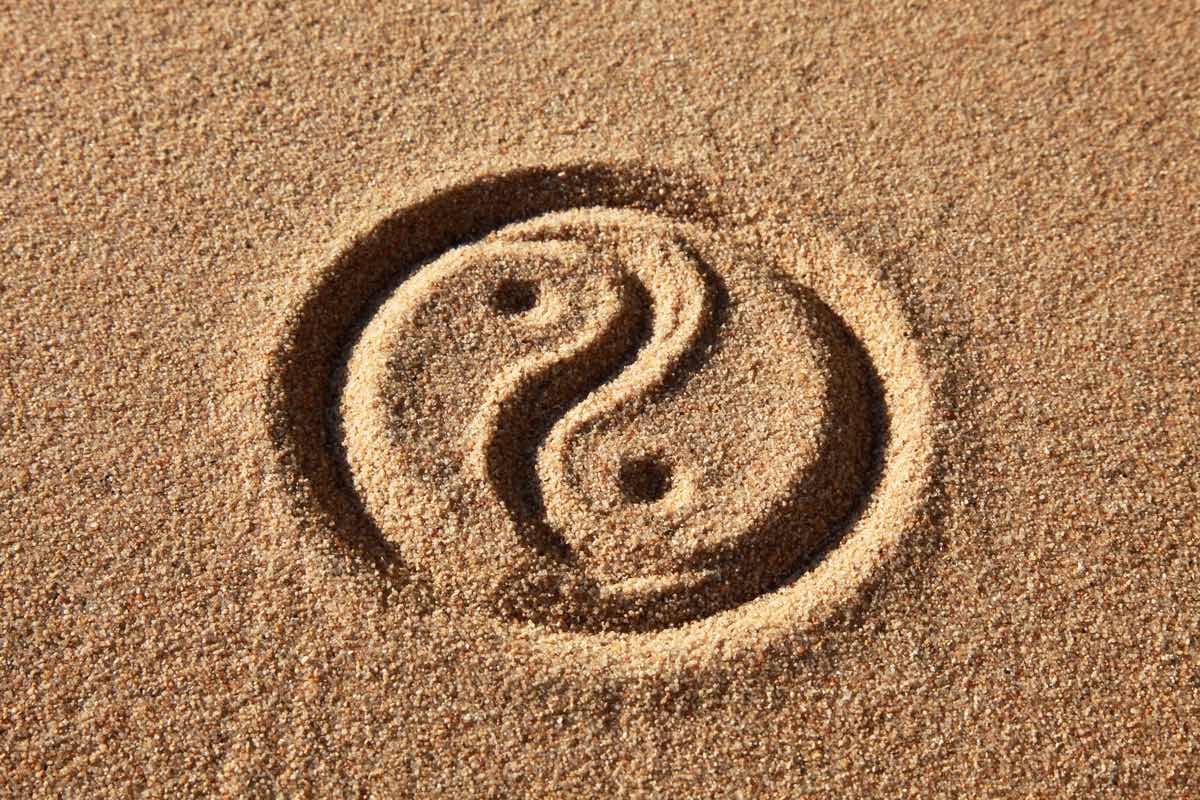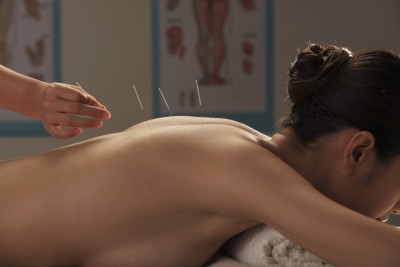Acupuncture
Acupuncture
Acupuncture is a healing therapy within Traditional Chinese Medicine that has been used for over 3,000 years. Acupuncture promotes natural healing and improves functioning. It does this by stimulating specific points on the body. By targeting these specific points, acupuncture helps to bring balance to the body, reduce inflammation, and stimulate the body’s own painkillers.
Benefits of Acupuncture include:
- Pain Reduction
- Improved Immune System
- Stress Reduction
- Speeds Healing
- Improved Circulation
- Better sleep
- Improved energy

The Principle Behind Acupuncture
According to Chinese medical philosophy, health is a state of optimal balance where Qi, the vital life energy, flows harmoniously through meridians or channels in the body. When this flow becomes disrupted or imbalanced, it can lead to illness or discomfort. Acupuncture works by stimulating specific points along these meridians, aiming to restore balance and promote the body’s natural healing response.
In the context of modern medicine, research suggests that acupuncture works by stimulating various physiological systems. It may activate areas of the brain, stimulate the release of natural painkillers (endorphins), regulate the immune system, and influence blood pressure regulation.
How does Acupuncture Work?
Acupuncture corrects imbalances by stimulating specific points on acupuncture channels. When stimulated, these points help the qi to flow smoothly. Acupuncture points are located on the channels, each having a precise healing action. Imbalances are related to the body’s energy, called qi (pronounced chee).
Qi travels through channels in the body like water flowing through a winding river. These channels connect the body’s surface to the internal organs and muscles, this is why acupuncture can treat digestive, hormonal, and other medical diseases as well as physical pain and injury.
Acupuncture research has shown many ways acupuncture reduces pain and inflammation in the body. Using a type of brain scanner called an fMRI, scientists have shown that acupuncture works with the nervous system to reset the brain when it is stuck in an unhealthy pattern of pain and illness (1). This is a way of reteaching the body to be healthy.
Acupuncture also stimulates the release of natural pain relievers, endorphins, serotonin, and endocannabinoids in the brain. These neuro chemicals reduce pain and anxiety (2).
Acupuncture also reduces inflammation and balances hormones.
Healing also occurs at the place where the needle is inserted. The surrounding tissue actually grabs hold of the acupuncture needle and expands (3). Scientists believe this begins the repair of the cells and tissues around the needle. This also begins the healing cascade throughout the body and the nervous system.
The Initial Visit
Before your treatment, I will assess your condition and ask you a series of questions as well as take your pulse and look at your tongue. A unique treatment will be created for your specific needs.
Acupuncture needles are inserted into specific areas of the body to treat specific ailments. They may be placed in the skin just beneath the surface or inserted deeper into trigger points. When the needle is inserted into your skin, you feel a warm, tingling, or moving sensation. Sometimes the muscles will twitch a little when the needles are inserted. This is the stimulation of the acupuncture point called getting the Qi. The treatment does not cause significant pain. After the needles have been inserted, they remain in place for about thirty minutes.
The main aim of acupuncture is to balance the flow of qi through the body. There are hundreds of acupuncture points that lie along 14 major channels – energy-carrying pathways. When these points are stimulated, they release natural chemicals and endorphins that aid in healing. As a result, an acupuncture treatment will be effective in reducing symptoms of sickness.
The number of acupuncture sessions you receive depends on the type of medical condition being treated. Some people require a couple of sessions each week, while others only need one session every few weeks. During an acupuncture session, you should not engage in stressful activities or be on your phone. Instead, you should remain calm and relaxed throughout the procedure.
Acupuncture feels good. People usually feel very relaxed after acupuncture and lose track of time. People usually find that acupuncture treatments are very relaxing and often lose track of time.
Safety and side effects:
Acupuncture is considered a safe and low-risk therapy when performed by a licensed and experienced practitioner. Some patients may experience mild, temporary side effects such as soreness, bruising, or bleeding at the needle insertion sites. However, these side effects are generally minimal and resolve quickly.
There have been many studies that have shown that acupuncture is very safe. A very large review of acupuncture studies that included over 7000 studies and over one million patient records showed that acupuncture had very few side effects and stated that “Acupuncture can be considered among the safer treatments in medicine.” (4)
Acupuncture has many positive effects such as helping you feel more relaxed, have better sleep, and more energy.
We use only solid, single use, disposable needles so there is little risk of contamination.
What Does Acupuncture Feel Like?
Acupuncture needles are much thinner than a doctor’s hypodermic needle, more like a pin than a needle really. We use a guide tube that acts to distract the nerves so you feel very little when acupuncture needles are used.
After the needle is in, there’s a feeling of warmth and tingling. We call this feeling “de qi” or getting the qi. It means the acupuncture needle is stimulated. People usually find that acupuncture treatments are very relaxing and often fall asleep.
More than Just Acupuncture
Acupuncture treatment may involve many treatments and manual therapies. Acupuncture is often combined with moxibustion, the burning of ai ye (mugwort), a traditional Chinese herb, close to specific acupuncture points. The goal is to warm the acupuncture point and the muscles. We also use heat lamps to relax muscles. Electro-acupuncture is often used for chronic pain and arthritis. Other therapies may include cupping, gua sha, and tui na.
Acupuncture can also be used to enhance overall wellness and beauty with acupuncture facial rejuvenation.
Acupuncture Points
Acupuncture points are regions of the body where the body’s energy, or Qi, is more accessible. This is why we needle or massage them to influence the flow and circulation of Qi to treat various health conditions, including headaches, migraines, digestive problems, and other health concerns.
Acupuncture points usually lie on acupuncture channels that are located in different parts of the body. The channels travel from the hands and feet to the head which is why we can use points on the arms and legs to treat headaches, etc.
Usually, acupuncture points on the body are referred to by their traditional names or a number to indicate their location on a meridian. For example, the common hand acupoint, Hegu, is called LI 4, indicating that it is located on the Large Intestine meridian.
There are also acupuncture points not on the meridian. Points over an injury or tight muscles are called trigger points. Classically these are referred to as “ouch points.”
Each point has a specific healing action such as moving the qi in the digestive system, stimulating production of reproductive qi, or sometimes it will focus on a specific region of the body. By elegantly combining the points, the acupuncture treatment balances your body and promotes self healing.
What Can Acupuncture Help?
Acupuncture is recommended for a wide range of conditions. It can help patients with chronic pain or injuries that are not responsive to conventional medical treatment. It is also used to help alleviate symptoms in people who have chronic fatigue syndrome, fibromyalgia, autoimmune conditions, and rheumatoid arthritis. Studies have also shown that it may help with conditions such as migraine headaches, stress, anxiety, depression, insomnia, allergies, fertility, high blood pressure, tinnitus, and more.
In my 17 years of practice, I have developed specialties in the treatment of chronic joint pain, inflammatory diseases, skin diseases, pelvic pain, and many others. Over the years I have written many articles on acupuncture for various conditions.
I also treat a wide variety of other conditions. If you have been suffering from chronic pain for years, you need an acupuncture doctor who will listen to you and provide relief. I listen carefully to my patients, understand their problems, and formulate a plan to get them back on track.
Is Acupuncture right for me?
Acupuncture is effective for a wide range of conditions. If you are not sure if acupuncture is right for you please call us for a free telephone consultation. We can discuss your condition and what treatment is the best course.


